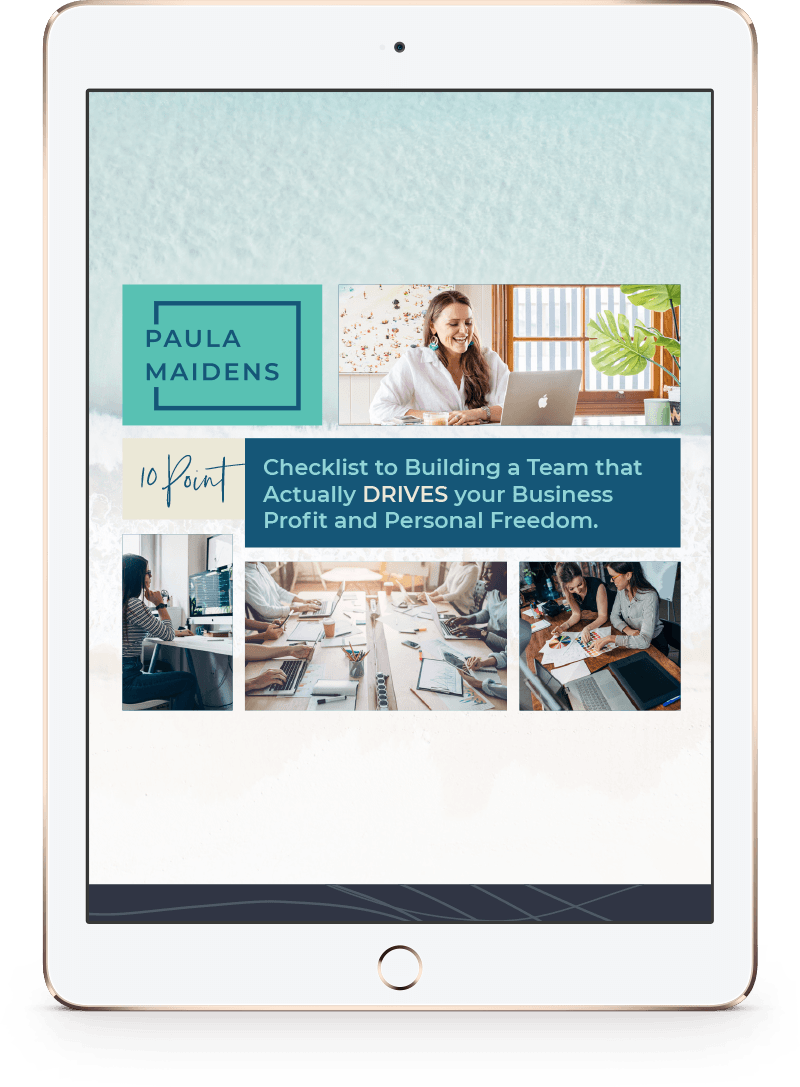As a business owner, you’re constantly seeking insight to help you grow, lead your team, and make better decisions. Whether it’s a tip shared in a Facebook group, a podcast recommendation, or a suggestion from a fellow entrepreneur, you’re probably surrounded by advice daily. But understanding the difference between advice and opinion can be the key to making better choices. This distinction matters more than most people realise.
Let’s unpack a growing problem I see across the small business space: the mislabelling of opinion as advice. It’s a subtle difference on the surface, but in practice, it can cause serious damage. From wasted time and money to legal consequences and leadership stress, acting on the wrong type of guidance can lead you down paths that are tough (and expensive) to unwind.
Let’s explore how to spot the difference between advice and opinion, and why this distinction is essential as your business matures.
Why the Difference Between Advice and Opinion Matters
It might sound like semantics, but distinguishing between true professional advice and someone’s personal opinion is vital for protecting your business.
Opinions can be well-intentioned and based on real experience, but they are still limited. They often reflect what worked in one context – one business, one moment, one industry.
Advice, on the other hand, is informed by deep and repeated professional experience. It’s strategic, nuanced, and takes into account context, risk, and outcomes. That’s the main difference.
The stakes are high. Taking the wrong course of action based on advice that isn’t actually advice can lead to unintended consequences: costly mistakes, damaged relationships, wasted time, and burnout from trying to unwind complex problems. When you’re leading a growing business, those are setbacks you simply can’t afford.
Here’s the simple truth: your business deserves more than borrowed strategies from someone else’s playbook.
Four Common Scenarios Where Opinion Gets Mistaken for Advice
1. The “Sample Size of One” Trap
One of the biggest red flags I see is advice being given based solely on a personal experience.
You’ll hear it phrased like: “This worked in my business – you should do it too.” However, the issue is that just because something worked in their business doesn’t mean it will translate to yours. Without a broader sample size or understanding of different business models, it’s simply an opinion, not advice.
What to ask instead:
- How many businesses have you seen this work for?
- Have you seen it fail? Why did it fail?
These questions reveal whether someone has insight beyond their own experience. If they haven’t seen it play out multiple times, across different contexts, then their input should be received as experience-sharing, not guidance.
Next time you hear a suggestion like this, take a moment to pause and evaluate it as a great idea to consider, but not necessarily great advice to act on without validation.
2. Generalists Giving Specialist Advice
Another common scenario is when generalists, even well-meaning ones, start offering advice on specialist areas like law, accounting, or hiring.
For example:
- Should I pay super to my subcontractors?
- Can I use this employment contract template I got from someone else?
Unless this person is a qualified accountant, lawyer, or HR expert, what you’re receiving is an opinion. It may be based on their experience, but they’re not equipped to account for the legal or financial nuances in your business. And crucially, they won’t be the person to stand beside you if it all goes wrong.
Even if their advice was given with the best of intentions, without the proper knowledge or liability, it’s risky to act on it without further validation. A great example of how good intentions don’t always lead to good advice.
This is also a situation where the same words — “you should try this” — can have different meanings depending on whether they come from a peer or a professional advisor.
3. “Everyone Does It” Doesn’t Mean It’s Right
Just because a practice is common in your industry doesn’t mean it’s legal or right for your business. I’ve worked across hundreds of industries, and I’ve seen this too many times: an “industry standard” being used as justification for a non-compliant or risky approach.
From how contractors are paid to what’s written in employment contracts, there are countless grey areas where “everyone does it this way” becomes the default advice. That doesn’t mean it’s safe. It just means no one has been caught yet.
In fact, regulatory bodies like the ATO or local councils often sweep through industries and crack down on these so-called norms. The question is: do you want to be the one they catch?
Next time you hear “everyone does it,” pause and consider whether it’s worth the risk or whether you need a better-informed course of action.
4. Facebook Groups & Crowd-Sourced Decisions
We’ve all seen the posts. A business owner describes a tricky situation and asks, “What should I do?”
The comments fill up with advice – except it’s not advice. It’s opinions, shared by people who don’t know the full context of your business, your team, or your goals. These conversations can be supportive, and it can be reassuring to know you’re not alone. But they shouldn’t be the basis for critical decisions.
Especially when you’re feeling emotional or overwhelmed, it’s easy to latch onto the response that validates what you want to hear. But what you want to hear and what you need to hear are often very different.
Just because a comment sounds like great advice doesn’t mean it’s truly applicable to your unique situation.
How to Tell if You’re Receiving Advice or Just Opinion
As your business grows, your need for reliable advice will grow too. But how do you filter through all the noise?
Here are some questions you can ask:
- Is this person a specialist in this area?
- How many times have they seen this approach succeed (and fail)?
- Have they worked with businesses like mine?
- Can they support me if this decision doesn’t go as planned?
- What’s their process for understanding my specific context?
And remember, real advice often comes with questions in return. The right advisor will want to understand your goals, business structure, leadership style, and team dynamics before offering a recommendation. This is the main difference between someone who’s genuinely qualified to support you and someone who’s simply sharing an opinion.
Why This Shift Matters for You as CEO
There comes a point where you must move out of the scrappy startup phase – the phase where you patch things together, borrow ideas, and cross your fingers.
That kind of bootstrapping is normal (and often necessary) early on. However, as you grow, continuing to lead in this manner can lead to burnout, overwhelm, and unintentional risks.
To grow sustainably, you’ll need to:
- Invest in targeted expertise
- Shift from “what worked for them” to “what’s right for me”
- Work with people who will guide you through implementation and stand beside you if things get messy
- Build a trusted advisory circle that understands your vision and can support your long-term goals
This is the main difference between leading reactively and leading strategically.
Final Thoughts
The journey from opinion-led decisions to confident, informed strategy is one every CEO must take. It’s not about being perfect or getting everything right the first time.
It’s about recognising when you need genuine expertise – and being discerning about who you listen to. Your business deserves more than borrowed advice dressed up as expertise.
If you’re starting to wonder whether the guidance you’ve received is truly serving your team, it might be time to explore a deeper conversation. That’s exactly why I created the Team Performance Audit.
Next Steps
Team Performance Audit: Get expert eyes on your team structure with this personalised diagnostic. You’ll complete a focused questionnaire, followed by a 45-minute strategic session. Afterwards, you’ll receive a detailed set of recommendations tailored to your team, your leadership style, and your business goals. 🔗 Learn more here.
Book a Free Discovery Call: Unsure of where to start? Let’s talk it through. Access my free resource – a complimentary 45-minute discovery call to explore your specific challenges and what support will make the biggest difference. 🔗 Book here.
By investing in the right advice and knowing how to filter through the noise, you’ll set yourself up for smarter decisions, stronger teams, and a business that’s built to last, not just survive.
Your growth deserves nothing less. And the next time you’re faced with a decision, remember the power of making it based on good advice – not just someone’s opinion.
About Paula

If you're growing a team in-house or online, Paula Maidens can help!


